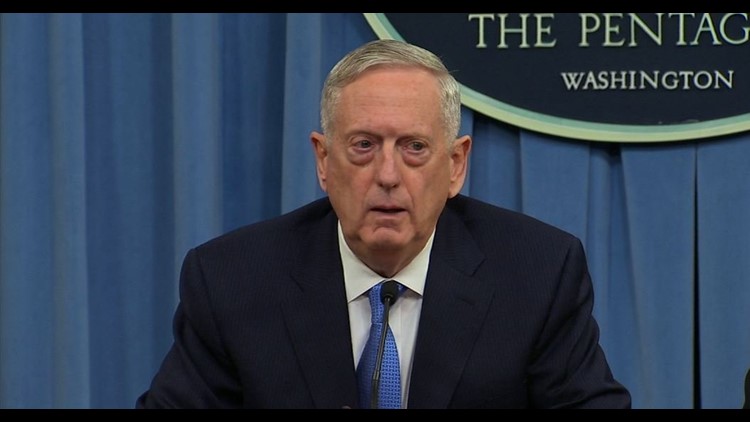Secretary of Defense James Mattis said Tuesday that America’s top priority in Syria remained fighting the Islamic State of Syria and Iraq, but he made it clear the use of chemical weapons would not be tolerated and could warrant additional military actions like last week’s missile strike against a Syrian air base.
“If they use chemical weapons, they are going to pay a very, very stiff price,” Mattis told reporters during his first Pentagon briefing as secretary.
Mattis said there was “no doubt” the government of Bashar al-Assad was responsible for the chemical attack in Syria last week that killed scores of civilians, including children, but he did not say whether he believed Syria’s key ally, Russia, was complicit.
“There’s no doubt the Syrian regime is responsible for the decision to attack,” Mattis said, adding, “The Assad regime planned it, orchestrated it and executed it, and beyond that we can’t say right now.”
Mattis sought to strike a clear message about US military objectives and priorities in Syria to eliminate any confusion about the scale of Thursday’s intervention in the wake of mixed messages from the administration regarding regime change in Damascus. The strike against al-Shayrat airfield was tied specifically to Damascus’ decision to use chemical weapons and did not indicate a wider military campaign aimed at ousting Assad, he said.
“Our priority remains the defeat of ISIS,” Mattis said, labelling the terror group “a clear and present danger.”
“The purpose of this attack was singularly against chemical weapons use,” Mattis told reporters, saying preventing the use of chemical weapons represented “a vital national interest” of the United States in order to ensure that such weapons of war do not become “commonplace.”
“The reason for the strike was that alone,” he said. “It was not a harbinger of some change in our military campaign.”
Mattis cited the damage to Assad’s air force from the missile strike as one reason why the Syrian leader might regret his decision to use sarin gas as a weapon.
A US defense official told CNN that nearly two dozen Syrian aircraft were destroyed in the missile attack, which Pentagon officials say equates to about 20% of the regime’s operating air force.
Mattis also offered a stark warning to the Syrian leader.
“I recommend Assad be rather cautious about violating international law with chemical weapons,” he said. “I suppose that could be considered a red line.”
“The Syrian regime should think long and hard before it again acts so recklessly in violation of international law against the use of chemical weapons,.” he added
Some ambiguity remains, however, on whether the most commonly used chemical weapon in the Syrian civil war, chlorine-filled barrel bomb dropped from aircraft, would warrant US military action.
International monitoring groups, including the Organization for Prohibition of Chemical Weapons and the United Nations Joint Investigative Mechanism, have accused Assad’s air force of using such weapons multiple times
Like sarin, weaponized chlorine is prohibited under the convention outlawing chemical weapons.
“It is not about whether it’s delivered with an artillery shell, or it’s delivered by a helicopter with a barrel bomb, or a fighter aircraft with a bomb,” Mattis said. “It’s about chemical weapons.”



